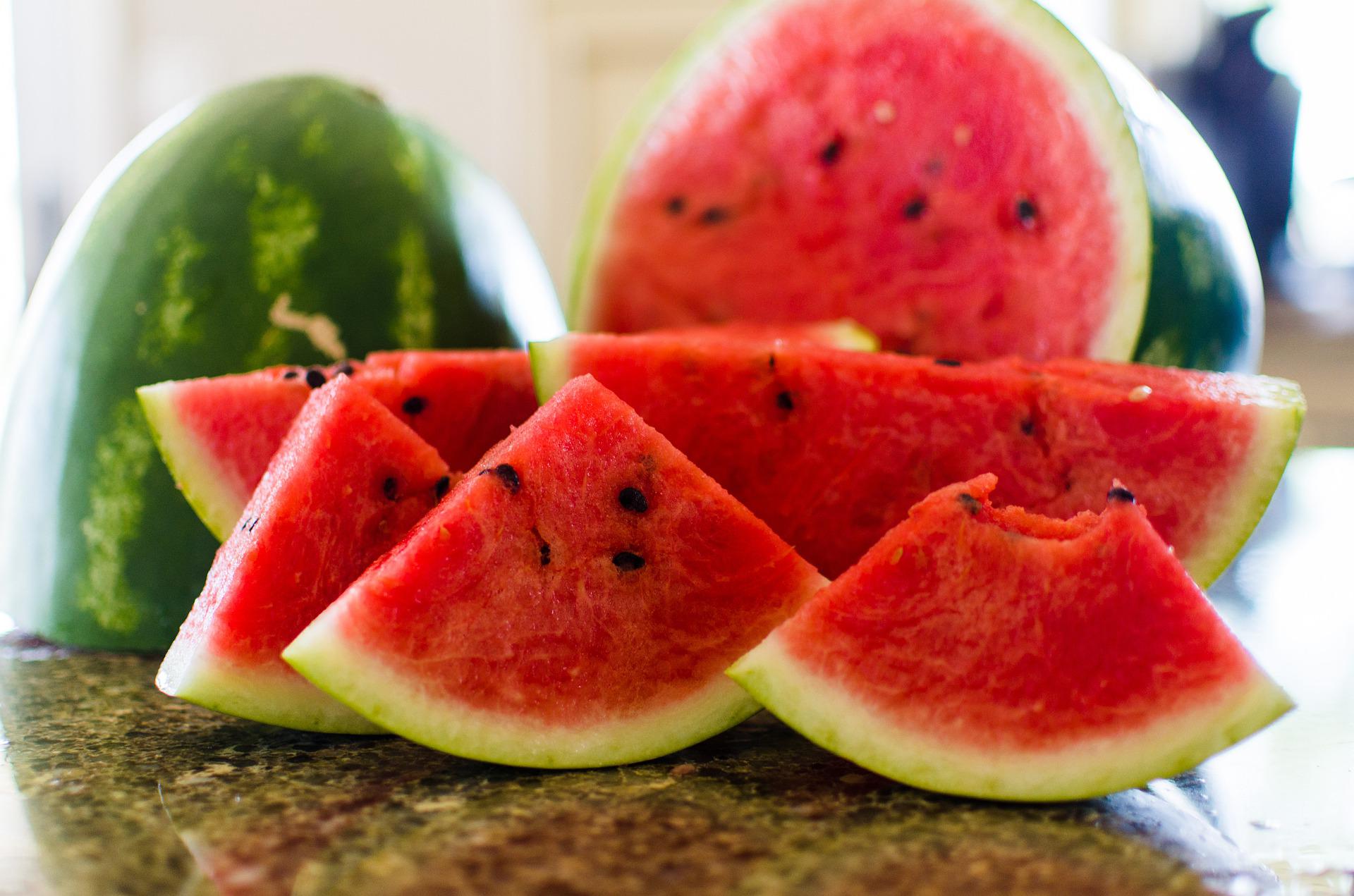It’s common knowledge that eating a slice of Watermelon on a hot day is a great way to cool down, but this nutritious fruit does much more. It can also aid in managing diabetes and the battle against free radicals, which may make you more susceptible to chronic diseases. It assists in slimming down, wards against heart disease, and lessens the severity of asthma episodes. This fruit is an excellent source of vitamins C and A and only has 45 calories. Watermelon is a nutritious fruit that might help you lose weight since it contains 92% water and makes you feel full while reducing hunger. On that note, let’s go further into Watermelon’s beneficial effects on our bodies.
Nutritional facts
Watermelon is an excellent low-calorie fruit choice since it is hydrating and contains several beneficial micronutrients. The average Watermelon (one cup, or around 150 grams) has 11.5 grams of carbs, of which roughly 9 grams are sugars. With approximately 1 gram of protein in each 1-cup meal, Watermelon is not a significant source of protein but contributes to a protein-rich diet due to its other advantages. Watermelon’s health benefits come from its vitamin content, which provides 5% of the daily need for Vitamin A and 14% of the daily requirement for Vitamin C. You’ll get 4 percent of your daily Magnesium and Potassium needs from it.
8 Surprising Health Benefits of eating Watermelon
1. High concentration of vital nutrients up front.
Watermelon is low in calories (46 per cup) yet high in nutrients. Research states it has a plethora of vitamins and minerals, including potassium, vitamins A and B6, and roughly 15% of your daily vitamin C need. Research says that vitamin C boosts immunity and aids iron absorption, while vitamin A is essential for skin and eye health. Vitamin B6 aids in the breakdown of protein in the diet and strengthens the immune system and neurological function; you may find both of these vitamins in abundance in Watermelon.
2. Watermelon Provides substantial lycopene
Lycopene is a natural chemical with antioxidant characteristics found in Watermelon and other fruits and vegetables. Lycopene is responsible for Watermelon’s red color, but it has watermelon health benefits beyond just that. It has been demonstrated to reduce the likelihood of developing cancer, cardiovascular illness, and age-related eye diseases. Lycopene helps protect your cells from harm and, according to some studies and even may help reduce blood pressure if ingested regularly.
3. Maintains fluid balance
More than 90 percent of a watermelon is water. Hence, as the name indicates, Watermelon may keep you hydrated.” Watermelon is an excellent addition to a healthy diet since, as the saying goes, “we obtain 80% of our hydration from what we drink and 20% from what we eat.”
Most people don’t get nearly enough water, even though staying hydrated is especially crucial in the summer when temperatures increase, and you may lose water through perspiration. After exercise or after you’ve been sweating heavily for an extended length of time, snacking on Watermelon with a pinch of salt is a great idea. The combination of sugar and salt is excellent for restoring glycogen and sodium levels.
4. Helps maintain proper digestion.
Watermelons have low fiber content and high water content. Both are critical to maintaining healthy digestive function. Fiber helps maintain regular bowel movements by adding bulk, while water aids in the movement of waste through the digestive tract.
5. Kidneys.
Toxins in the air we breathe add to the toxins in our food, creating a cumulative effect on the human body. However, your kidneys are responsible for eliminating these toxins; thus, consuming one glass of watermelon juice daily is recommended for optimal kidney health. Watermelons’ primary minerals, calcium, and potassium, aid in detoxification by neutralizing and excreting harmful substances.
6. Possible benefits to eye health
Lycopene, a plant chemical found in watermelons, has been linked to the protection of the eye’s connective tissues against deterioration. Lycopene has anti-inflammatory and antioxidant properties. More study is required to determine precisely how lycopene helps maintain healthy eyes, although preliminary findings suggest Watermelon may have some positive effects on vision.
7. Reduce muscular pain
It has been shown that consuming Watermelon in the form of either watermelon juice or Watermelon itself may improve athletic performance and reduce muscular soreness. Citrulline is an amino acid, and some researchers have put up the hypothesis that it may have a role here. An increase in the production of nitric oxide, which citrulline has the potential to enhance, may lead to an improvement in blood flow. Although these claims need to be supported by more studies, it is still a good idea to include watermelon juice in your post-workout recovery routine.
8. Prevents heat strokes
The United States has a significant problem with heat stroke, and the use of this product may help avoid it. However, the fever that is linked with this condition has the potential to be deadly since the human body does not have the ability to manage temperatures that reach levels that are considered to be fatal. People may be able to prevent heat exhaustion because of the electrolytes included in Watermelon. Because of its ability to lower body temperature, the consumption of watermelon juice may be beneficial in maintaining a normal internal environment.
Should start consuming more watermelon
Because of the extraordinary amount of nutrients in Watermelon, eating it daily throughout the summertime has a variety of positive effects that are both extensive and many. A piece of Watermelon may be consumed on its own as a snack, but you can also include the fruit in other dishes. Why don’t you try it in a fruit smoothie or on top of a salad? Last but not least, if you want to get the most excellent Watermelon that money can buy, you should search for one that is solid, weighty, and free of any noticeable dents or bruises.

